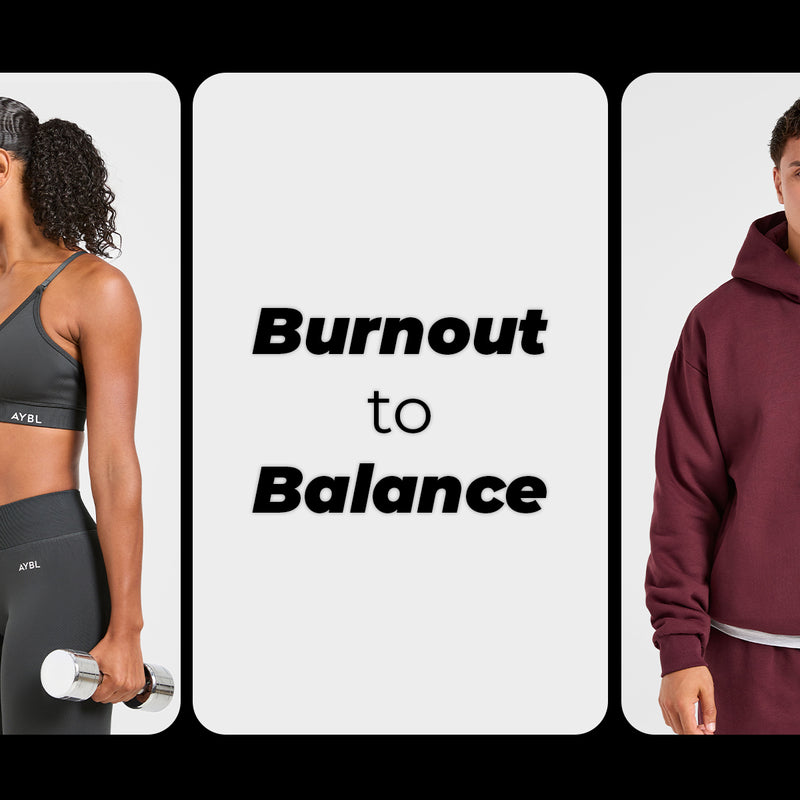
Burnout to Balance: Prioritising Self-Care in Fitness
Burnout in fitness often stems from overtraining and under-recovery. Unlike everyday stress or fatigue, exercise burnout lingers and drains your energy, motivation, and enjoyment of training. If ignored, it can take a toll not just on physical performance but also on mental wellbeing. The solution isn’t to push through, but to step back: prioritise self-care, recovery, and balance, so your body and mind have the chance to repair and come back stronger.
What causes exercise burnout?
Overtraining and Under-Recovery
Pushing your body too hard without enough time to rest is the number one cause of burnout. Skipping rest days doesn’t make you stronger, it holds you back.
Monotony in Training
Repeating the same workouts and routines can quickly become boring, making you dread exercise instead of looking forward to it. Variety keeps both body and mind engaged.
Unrealistic Goals and Pressure
Chasing perfection, especially when progress is measured only by appearance, can be discouraging. Physical changes are slow and difficult to track, which often leads to frustration and demotivation.
Ignoring Warning Signs
Muscle fatigue, lingering soreness, irritability, and lack of motivation are all red flags. Ignoring them only pushes your body deeper into burnout. The best advice? Listen to your body.
External Stressors and Poor Balance
Work, relationships, and daily life stress can weigh heavily when combined with an intense training routine. Without balance, the pressure to “do it all” can become overwhelming.
How to prevent burnout and practice self-care.
Burnout isn’t inevitable, with the right balance of training and recovery, you can stay motivated and consistent long term. Here’s how to prevent it:
Prioritise rest and recovery.
Schedule rest days just like workouts. Recovery is when your body repairs and grows stronger, not when you lose progress.
Get Quality Sleep
Aim for 7–9 hours of good sleep each night. It’s the most powerful recovery tool you have.
Set Realistic Goals
Focus on progress, not perfection. Track performance (strength, endurance, energy levels) rather than just physical appearance.
Listen to Your Body
Pay attention to signs of fatigue, soreness, or mental resistance. Taking a step back doesn’t mean giving up, it means training smarter.
Fuel Properly
Eat to nourish, not punish. Balanced nutrition supports recovery, energy, and overall wellbeing.
Having a strict and intense workout routine can be great for progress and endorphins. However, overdoing it can do more harm than good. That’s why it’s important to practice self-care and ensure your body reaches its full potential.
And when you look your best, you feel your best!
Explore our bestsellers for a new gym set or loungewear to support both training and rest days.